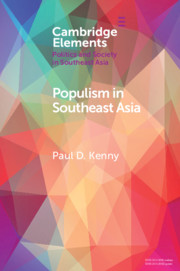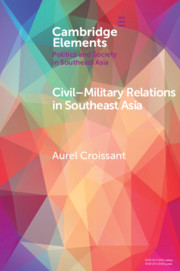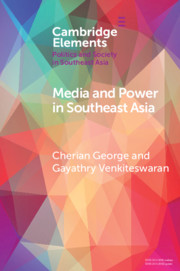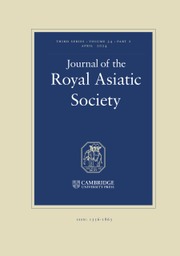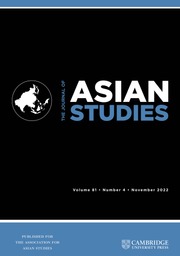Populism in Southeast Asia
$22.00 USD
Part of Elements in Politics and Society in Southeast Asia
- Author: Paul D. Kenny, Australian National University, Canberra
- Date Published: January 2019
- availability: This ISBN is for an eBook version which is distributed on our behalf by a third party.
- format: Adobe eBook Reader
- isbn: 9781108647823
Find out more about Cambridge eBooks
$
22.00 USD
Adobe eBook Reader
Other available formats:
Paperback
Looking for an inspection copy?
This title is not currently available on inspection
-
Conceiving of populism as the charismatic mobilization of a mass movement in pursuit of political power, this Element theorizes that populists thrive where ties between voters and either bureaucratic or clientelistic parties do not exist or have decayed. This is because populists' ability to mobilize electoral support directly is made much more likely by voters not being deeply embedded in existing party networks. This model is used to explain the prevalence of populism across the major states in post-authoritarian Southeast Asia: the Philippines, Indonesia, and Thailand. It extracts lessons from these Southeast Asian cases for the study of populism.
Customer reviews
Not yet reviewed
Be the first to review
Review was not posted due to profanity
×Product details
- Date Published: January 2019
- format: Adobe eBook Reader
- isbn: 9781108647823
- contains: 3 b/w illus.
- availability: This ISBN is for an eBook version which is distributed on our behalf by a third party.
Table of Contents
1. Introduction
2. Defining populism
3. The causes of populism in Southeast Asia
4. Fragmented parties
5. Populist leaders
6. Conclusion – populism and democracy.
Sorry, this resource is locked
Please register or sign in to request access. If you are having problems accessing these resources please email [email protected]
Register Sign in» Proceed
You are now leaving the Cambridge University Press website. Your eBook purchase and download will be completed by our partner www.ebooks.com. Please see the permission section of the www.ebooks.com catalogue page for details of the print & copy limits on our eBooks.
Continue ×Are you sure you want to delete your account?
This cannot be undone.
Thank you for your feedback which will help us improve our service.
If you requested a response, we will make sure to get back to you shortly.
×
